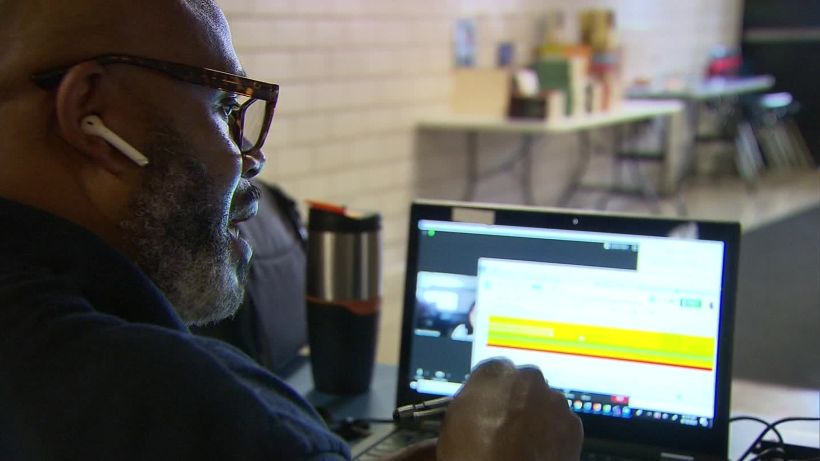As the top college sports conferences in the US weigh whether to play or suspend fall sports, the NCAA’s top doctor issued a warning over the challenges they face in determining the safety of moving ahead.
Dr. Brian Hainline, Chief Medical Officer of the National Collegiate Athletic Association (NCAA), told the Infectious Diseases Society of America (IDSA) on Thursday that the lack of a national testing and contact tracing system has “made it very challenging to make decisions as we approach fall sport.”

“When we started talking about return to sport in April, we were envisioning that there would be a continued downward trajectory of Covid-19 new infections and deaths – that there would be a national surveillance system, national testing and national contact tracing – that would allow us to really navigate this pandemic into re-socializing both in sport and in the rest of society,” Hainline said. “And that hasn’t happened.”
“We’re moving into very troubled waters right now,” the doctor said. “It’s a very narrow path to get ball sports right.”
The Pac-12 and Big Ten – two of the “Power Five” NCAA conferences – officially voted to postpone fall sports and continued concerns over student-athletes competing amid a pandemic. But the other major conferences – the ACC, Big 12, and SEC – are moving ahead with plans to let them compete in the fall despite the league saying there will be no championships.
“We cannot now at this point have fall NCAA championships,” NCAA President Mark Emmert said Thursday via Twitter.
Emmert mentioned the possibility of using bubble sites – similar to what the WNBA and NBA are doing now – in an attempt to keep players safe. Still, he said winter and spring sports have the highest priority, because they lost their championships last March.
Assessing the risk
The warning didn’t just come from the NCAA’s top doctor.
Two fellows from the IDSA said when it comes to playing sports in the fall, it’s all about risk. One said it’s safe to assume athletes will get infected with the virus.
Dr. Colleen Kraft, Associate Professor of Medicine, Division of Infectious Diseases at Emory University School of Medicine, said that conferences are trying a “dip your toe in and see what happens” approach, while others are not playing at all.
For those choosing to play, Kraft predicts Covid-19 cases will pop up.
“They will be able to see the experience that many of the others of us have had, where there will be transmission, it will be difficult,” she said.
Dr. Carlos del Rio, Executive Associate Dean at Emory University School of Medicine at Grady, said we assess risk all the time in our personal lives and that people will have to make decisions based on how much risk they’re willing to take.
But the numbers in the US, del Rio said, are simply too high at the moment to safely move ahead.
“I mean, I feel like the Titanic,” del Rio said. “We have hit the iceberg, and we’re trying to make decisions on what time should we have the band play.”
“We need to focus on what’s important – what’s important right now is that we need to control this virus,” he added.
“Not having fall sports this year and controlling this virus, to me, would be the number one priority,” he said. “My advice to colleges, my advice to organizations that I’ve talked to, is if you cannot do it safely, you shouldn’t do it,” del Rio said.
CDC issues a dire warning
A top federal health official issued a dire warning on Thursday: Follow recommended coronavirus measures or risk having the worst fall in US public health history.
“For your country right now and for the war that we’re in against Covid, I’m asking you to do four simple things: wear a mask, social distance, wash your hands and be smart about crowds,” said Dr. Robert Redfield, director of the US Centers for Disease Control and Prevention.
“I’m not asking some of America to do it,” he told WebMD. “We all gotta do it.”
Without following the recommendations, this could be “the worst fall, from a public health perspective, we’ve ever had,” he said.
Coronavirus has infected more than 5 million people and killed over 166,000 nationwide, according to Johns Hopkins University. On Wednesday alone, there were 55,910 reported new cases and 1,499 deaths – the highest number of fatalities since May.
“You can’t run away from the numbers,” Dr. Anthony Fauci, director of the National Institute of Allergies and Diseases, said during a National Geographic panel Thursday. “You can’t run away from the numbers of people who’ve died, the number of people getting hospitalized, the surges we’re seeing.”
CNN’s David Close, Jill Martin, Kevin Dotson, Ben Tinker, Faith Karimi, Leah Asmelash, Steve Almasy and Dakin Andone contributed to this report.


















